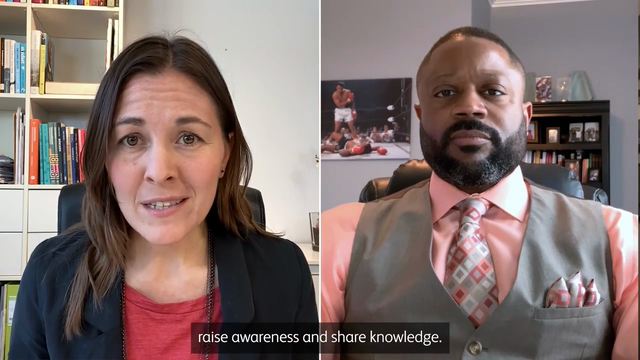Empowering Psoriasis Patients Through Mental Health Support
Bristol Myers Squibb colleague Royce Thomas shares the story of his journey living with psoriasis in honor of World Psoriasis Day on October 29, 2022
Originally published on Bristol Myers Squibb News & Perspectives
Roughly 100 million people worldwide are impacted by psoriasis around the world.
One of those individuals is our colleague, Royce Thomas, senior territory business manager, Oncology, whose journey began at age 37, with what he thought was a bug bite, or rash. His physician ruled it dermatitis and gave him a prescription. However, when his condition worsened, Royce sought out a dermatologist who correctly identified his symptoms as psoriasis.
He was shocked by his diagnosis. As an African American man in his 30s, psoriasis was not a condition he expected. He was worried about how the disease would affect his physical health, daily life and appearance.
During his journey with psoriasis Royce often felt alone, so he sought counseling for support and joined a patient advocacy organization to help others living with the disease.
“Connecting with others with this disease made a huge difference for me,” Royce said. “Having the support of a community that understands everything you’re going through helps people with this disease come out of hiding, and begin to have hope for a normal life.”
Lurking in the shadows of the physical symptoms of this disease is the impact it can have on a patient’s mental health. The red, scaly rashes that are the calling card of psoriasis often cause a patient embarrassment and shame in addition to physical pain and discomfort. Studies show that, globally, 25% experience depression and 48% experience anxiety. In fact, psoriatic disease has the highest prevalence of depression compared to other dermatological conditions.
“This year, in recognition of World Psoriasis Day on October 29, we’re focusing on the mental health challenges that people living with psoriatic disease face as a result of their illness,” said Frida Dunger Johnsson, executive director of IFPA (previously known as International Federation of Psoriasis Associations). “It’s important that we see and treat the whole person, and not just their physical symptoms.”
Royce recently shared his story with Johnsson. Watch a video of their conversation to learn more about his story of living with psoriasis.



